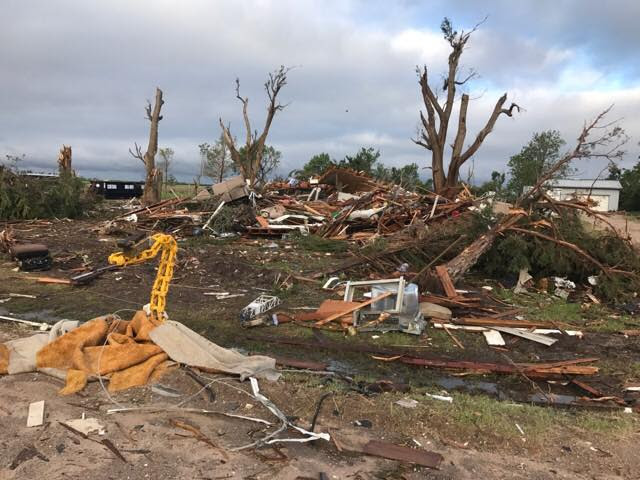
By BECKY KISER
Hays Post
Are tornadoes becoming more frequent and more severe?
“Depends on who you ask,” according to Dr. Grady Dixon, chair and associate professor of Geosciences at Fort Hays State University. “People’s perceptions run wild.”
“People’s perceptions are that tornadoes are becoming less intense or less frequent in certain places in the country if they haven’t had one in the last 10 years. And then other places that have had a couple of them in memorable fashion think they’re becoming more frequent,” Dixon said.
Actual research is pointing to changes in the character of tornadoes.
“In a somewhat consistent pattern, the research is starting to show that we’re not getting more, we’re not getting fewer. However, the character is changing. We tend to be getting fewer days with tornadoes but the days we have seem to be more productive,” Dixon explained. “I tend to think that’s worse because more productive days means you’re probably going to have more outbreaks, you’re probably going to expose more populated areas. This seems to be the trend from the best research out there now.”
Dixon said it’s not clear if the more productive tornado days are associated with climate change. “We don’t have an answer yet.”
“We’re better at detecting and reporting tornadoes. We’re better at alerting about them. We can detect tornadoes now that before we never knew were occurring and we didn’t have the resources to go out and look for evidence of them. It’s all improving,” he pointed out.
“The research on climate change seems to be suggesting it would cause what we’re seeing, fewer events that tend to be more prolific, but that’s not 100 percent.
“We think what will probably happen is places that did not used to see tornadoes will start seeing them more frequently. I don’t expect places like Kansas will have a significant change over the next several years,” Dixon said.
Tornadoes have occurred in every state, including Alaska and Hawaii, and have occurred in every month.
Dixon is a physical geographer with expertise in meteorology and climatology.
Click here to see Dixon’s entire interview with Mike Cooper and Community Connection.
